Named Halo but far from a saint: the shark-eyed stallion who shaped the breed
Michele MacDonald looks at a fierce but formidable sire 50 years after his birth
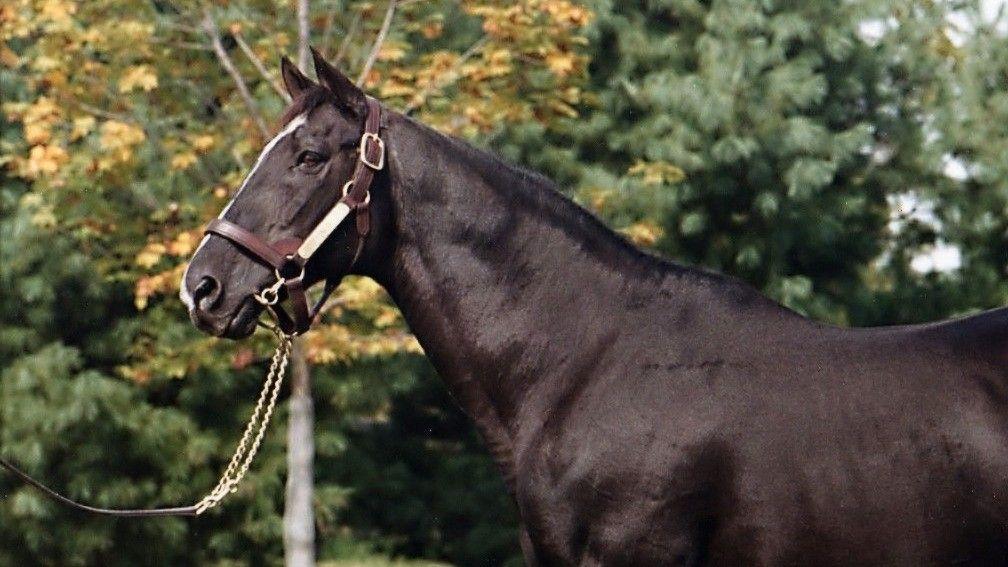
Imagine the barrenness of a racing landscape without electric superstars Winx and Zenyatta, or a world that lacked charismatic Japanese Triple Crown winners Deep Impact and Orfevre and was devoid of European stars Giant’s Causeway, Singspiel and Machiavellian – and all their offspring.
None of these brilliant horses, and so many others, would have existed without Halo, the nearly black stallion who became legendary for both his extraordinary ability to sire individuals that could change the breed and his blazing temperament.
From his birthplace in Kentucky to every continent in the world, Halo has stamped his mark on thoroughbred racing in patterns that continue to expand. His story features some of the world’s most influential breeders, big money, monumental victories and crushing heartbreak.
While it has been 50 years since Halo was foaled and almost 19 since he passed away aged 31 in November 2000, the blood of this horse who contributed to changing the world, particularly through his sons Sunday Silence and Southern Halo and grandson More Than Ready, is still very much alive.
"He was one of a kind, and he was one of the better sires we’ve seen in America in the last century," reflects Arthur B Hancock III, whose Stone Farm stood Halo for many of his years at stud. "I think Halo ranks right up there, especially with the legacy he’s left."
Beginning his breeding career alongside the most pre-eminent American-based stallion of perhaps all time, Northern Dancer – who shared the same second dam, Almahmoud – Halo was launched to the bloodstock work from EP Taylor’s Windfields Farm in Maryland.
Curiously, however, it was only twists of fate that allowed his 22-year stud career and his resulting legacy to unfold as it has.
Halo was meant to stand in Britain, but his initial sale was rescinded with a bitter complaint from the prospective buyer. Later, after his move to Kentucky, the stallion wound up on an operating table for colic surgery, which he was fortunate to survive.
“Thank God it was something that could be fixed,” says Hancock, who rushed to the equine hospital to watch over the horse who would eventually save the breeder and his farm from the burden of heavy debt through the bittersweet sale of Sunday Silence.
The early years
By Hail To Reason and one of 15 foals produced by eventual Broodmare of the Year Cosmah, Halo was bred by John Gaines and sold for $100,000 as a yearling at Keeneland to Charles Engelhard in 1970, the same year the owner raced Nijinsky to Triple Crown glory in Britain.
After showing talent as a stakes winner on dirt, Halo was switched to turf and annexed another stakes. A deal was reached to sell him for $600,000 to Hollywood producer Irving Allen, who planned to stand the horse at his Derisley Wood Stud in Newmarket, but Halo was rejected when Allen determined he was a cribber.
Returned to training for the Engelhard family’s Cragwood Stable, which was carrying on following their patriarch’s death in 1971, Halo won the 1974 Grade 1 United Nations Handicap and the Grade 2 Tidal Handicap on turf, earning high-calibre credentials for a stud career.
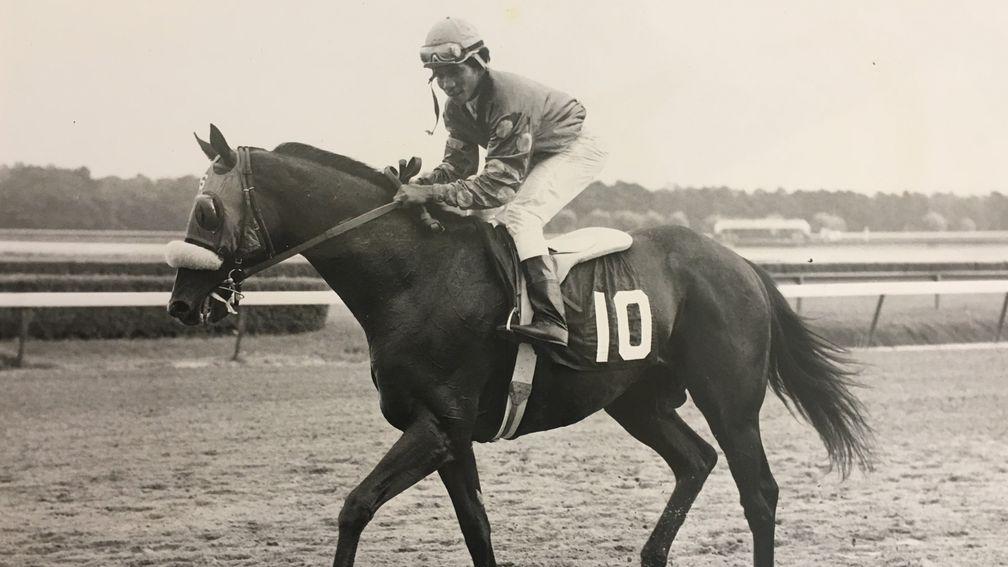
The late Windfields vice-president Joe Thomas said in a 1980s interview that only Allen’s ire at discovering Halo was a cribber allowed Windfields to acquire the horse. Taylor did not quibble over the cribbing or hesitate over an upgraded price.
As Thomas recalled, "We went to Engelhard’s wife and asked if Halo was for sale. They said yes; they wanted $1 million for him. We said, 'Okay. We’ll buy him.'"
Halo, a half-brother to champion filly Tosmah and to the dam of 1974 Kentucky Derby winner Cannonade, was subsequently syndicated for $1.2m, with 40 shares at $30,000 each.
Growing reputation
In his first crop, Halo began to reveal the impact he could make on the breed by siring the filly Glorious Song from Windfields’ Herbager mare Ballade. The bay filly became a multiple Grade 1 winner in the United States as well as Canada’s Horse of the Year in 1980.
Glorious Song in turn produced three remarkable stallions: Rahy, a son of Blushing Groom who counted among his progeny more than 90 stakes winners including global champion Fantastic Light, American champion Serena’s Song, and Mariah’s Storm, dam of Giant’s Causeway, and Singspiel, a son of In The Wings who won Grade/Group 1 races in Japan, Canada, Britain and Dubai and sired the likes of superior racemare Dar Re Mi, dam of Cartier champion Too Darn Hot, as well as Dubai World Cup winner Moon Ballad and American champion Lahudood.
Glorious Song was also dam of Rakeen, by Northern Dancer, a champion sire in South Africa who transformed breeding there through his two-time Horse of the Year and seven-time leading sire son Jet Master.
It was Halo’s fifth crop, however, that propelled him to the highest echelon. His four stakes winners from that group were topped by Canadian juvenile champion and Kentucky Derby winner Sunny’s Halo, a blaze-faced chestnut produced by a $2,900 broodmare who would go on to bank over $1.2m.
By the time Devil’s Bag, a full-brother to Glorious Song, was born in the following crop, Halo was shining brilliantly. When Devil’s Bag won a pair of Grade 1 events to earn the title of America’s two-year-old champion, he was quickly syndicated for $36m – a record for a juvenile – to stand at Claiborne Farm, and Halo reigned as leading North American sire in 1983 with the world seemingly at his feet.
As bloodstock markets were thriving at that time, interest in moving Halo from Maryland to Kentucky surged. Texas oilman Tom Tatham of Oak Cliff Thoroughbreds acquired 25 of the 40 shares in Halo and the horse was transferred to Stone Farm in a 1984 deal reportedly worth $36m.
“That was some price for a 15-year-old stallion,” reminisced Windfields manager Joe Hickey a decade later.
The stallion with a shark-eye
Hancock remembers the 15.3-hand Halo as “a well-balanced horse,” while others have noted that, while a rugged, masculine individual with good bone, he wasn’t perfectly correct in his front legs.
“The worst thing about him was his temperament,” Hancock says, recalling that Halo’s expression through what he described as the stallion’s “shark eye” was typically one of “if you mess with me, I will get you.”
"When he came from Windfields, he had a muzzle on and the Kentucky boys here said, ‘Those people at Windfields were just scared of him. We want to take the muzzle off,’” Hancock relates.
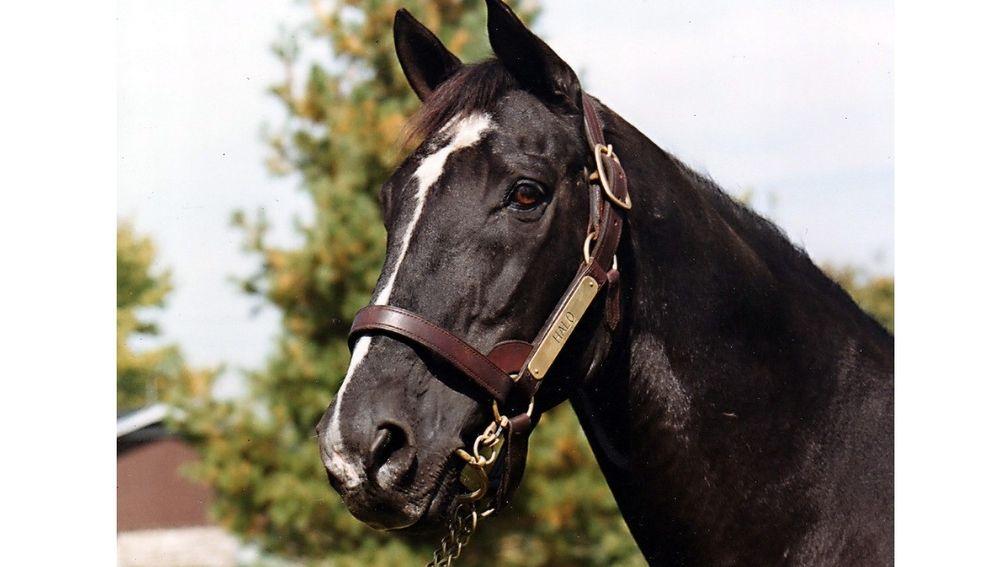
"I said, ‘Well, that’s fine, but every time you turn him out and bring him back, I want two people with him.’ So that went along fine for a while, and then one day Halo reached around and grabbed the stud groom, Randy Mitchell, right in the stomach and picked him up like a rag doll. Randy was kind of suspended in the air, waving his arms, with his back to the ground.
"Then Halo got down on his knees and got on top of Randy and started biting him right in the stomach. Virgil Jones was with Randy, and Virgil yelled at Halo and hit him on the head with his fist, and the horse turned Randy loose. Randy’s stomach was black, red, purple, blue and green for a month or so, and they had to take stitches. It was a scary thing.
"They got Halo into his stall,” Hancock adds. "And they put the muzzle back on."
Colic strikes
From his first Kentucky crop, Halo sired Canadian champion Tilt My Halo and Grade 1 winners and millionaires Lively One and Goodbye Halo, the latter a filly who won seven elite races including the Kentucky Oaks.
Halo had not been in Kentucky long when he was struck with colic. Hancock’s phone awakened him with the dreaded news one night, and the stallion was sent to the Hagyard-Davidson-McGee clinic.
“He was in a lot of pain and I thought, ‘Oh my God.’ I was scared to death,” Hancock recalls. “Here you’ve got this wonderful, proven stallion and it looks like you might lose him. Like Leslie Combs said, this is not a game for people wearing short pants.”
Surgeons cut Halo’s abdomen open and found a lipoma, a benign fatty tumour, and removed it without having to excise any of the intestine it was wrapped around.
“They sewed Halo up and he came back home and did what he did as a stallion. But that was a frightening, frightening night. I’ll never forget that,” Hancock says.
Halo’s second Kentucky crop would change racing and breeding in the most emphatic way and would give him his second North American leading sire title in 1989.
Silence reigns
Sunday Silence, a nearly black colt marked like his sire with a narrow blaze and a single sock, was delivered in March 1986 at Stone Farm to Tatham’s multiple Graded winner Wishing Well, who possessed a rather modest pedigree as a daughter of the Promised Land stallion Understanding.
Two months later, Ballade foaled a full-brother to Glorious Song and Devil’s Bag at Windfields’ Ontario farm. That colt, also nearly black with a stripe and one white foot, would be named Saint Ballado, and, like Sunday Silence, he would also become a leading sire.
With a downward spiral beginning in financial markets and, consequently, in bloodstock, Hancock advised Tatham to retain as many of Halo’s sons as possible to try to recoup some of his huge investment in the stallion. However, Tatham’s adviser, Ted Keefer, took an intense dislike to Sunday Silence when the colt was just a "skinny" weanling, as Hancock recalls.
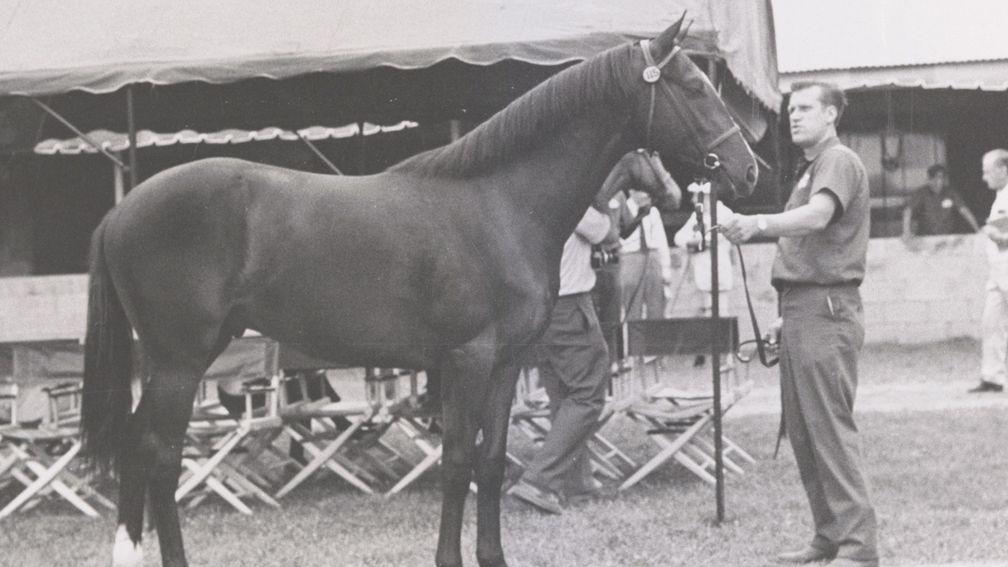
"Ted Keefer hated him," he says. "We were bringing the weanlings out to show Ted and he looked at him and said, 'Put that little son of a bitch back.'
"As a young horse, he was cow-hocked, and when he went through the [Keeneland July yearling] sale I bought him for $17,000,” Hancock continues. "I took the ticket to Tom Tatham and said, 'Here, that colt went too cheap and I bought him back for you.' He looked at the ticket and looked at me and said, 'Arthur, we don’t want him because Ted doesn’t like him.'
"So, I stuck the ticket back in my pocket and said, 'Well I guess I just blew another $17,000.' I already owed a lot of money."
Sunday Silence also failed to sell as a juvenile and was bought back for $32,000, but trainer Charlie Whittingham elected to take a half-interest and brought in Dr Ernest Gaillard as a partner.
The rest is history, with the colt winning the Kentucky Derby and the Preakness, as well as the Breeders’ Cup Classic, over arch-rival Easy Goer and earning the 1989 Horse of the Year title.
Despite those exploits, American breeders were not interested, even though Halo, at age 20, was getting older and there were no outstanding heirs apparent at that time.
“Nobody would take shares in Sunday Silence," Hancock says. "Then we got the offer from the Japanese to buy our horse. I hated to sell him, but nobody wanted to breed to him. The word had gotten around that he was a freak and a fluke and had no pedigree.
"It was terrible, but I couldn’t help it. I always said we didn’t sell him, the American breeders just didn’t want him. We had no choice. I owed a lot of money and had only three people who would take shares."
When the van came to take Sunday Silence away from Stone Farm and on to his life in Japan, Hancock was jolted by a sense of heartbreak.
"He had done so much for us, racing the way he did. I walked down that lane as the van left and – I’m not ashamed to say it – the tears just came,” Hancock recalls.
The faith expressed in Sunday Silence by Zenya Yoshida, who bought the colt for a price reported at $11m, was rewarded beyond anyone’s most lavish dreams.
Sunday Silence quickly established a dynasty from the Shadai Stallion Station, becoming Japan’s leading sire when his first crop numbering 67 foals turned three and holding that title for 13 years until 2007, five years after his premature death at age 16 from a leg infection and laminitis. He sired 44 Grade/Group 1 winners and was Japan’s leading broodmare sire eight times.
His sons Agnes Tachyon and Manhattan Cafe followed as Japan’s leading sires in 2008 and 2009. Then, after a two-year rule by Kingmambo’s King Kamehameha, Deep Impact – Sunday Silence’s best son – took over his sire’s mantle and has been the world’s top sire by progeny earnings ever since 2012, a position he currently maintains and could retain for several years following his death at 17 on July 30 due to a cervical spinal fracture.
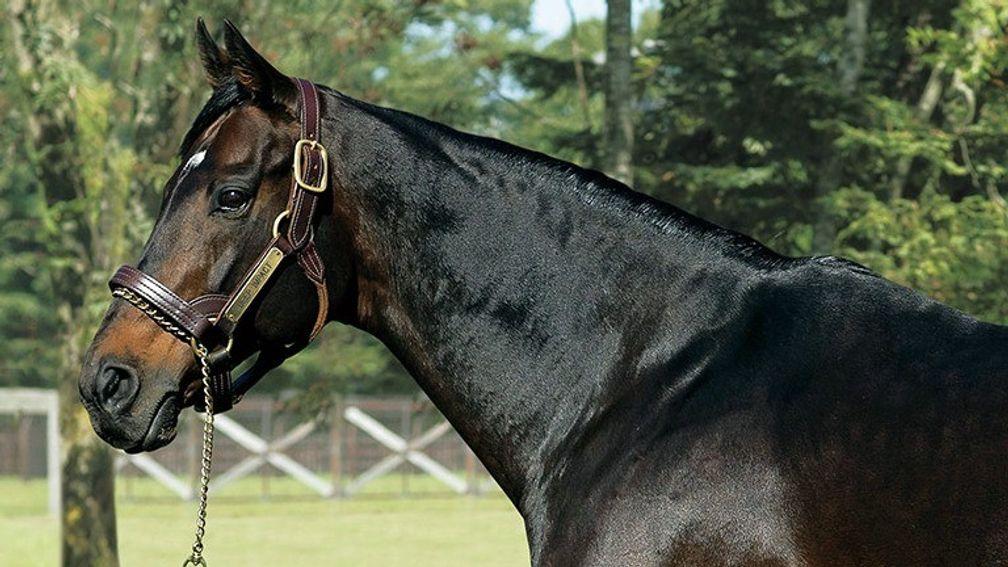
Deep Impact had sired 43 Grade/Group 1 winners up to mid-August.
Other sons of Sunday Silence have also been very successful, including Dubai Sheema Classic winners Heart’s Cry, whose progeny include 2014 Longines World’s Best Racehorse Just A Way, Caulfield Cup winner Admire Rakti and multiple US Grade 1 winner Yoshida, and Stay Gold, sire of Orfevre, who, following his Japanese Triple Crown finished second in the Prix de l’Arc de Triomphe twice after twice winning France’s Prix Foy.
When Sunday Silence passed away, Zenya Yoshida’s oldest son, Shadai Farm owner Teruya Yoshida, vowed that "from here on, I will endeavour to see that the great number of offspring that Sunday Silence has left behind will carry his blood forth for many generations to come."
Along with his brother Katsumi, Yoshida has done just that, spending hundreds of millions of dollars on elite broodmares from around the world to breed to sons of Sunday Silence.
They and international breeders including Coolmore, the Niarchos family, Wildenstein Stables and the Wertheimer brothers have bred horses from the Sunday Silence line who have won in Britain, France, America, the UAE and Australia. Deep Impact’s offspring Saxon Warrior, Study Of Man and Beauty Parlour all won European Classics.
Some prominent runners from the Sunday Silence branch have had as many as three lines of Halo in their pedigrees, such as 2017 Japan Cup winner Cheval Grand, by Heart’s Cry, and his half-siblings by Deep Impact, Dubai Turf and Shuka Sho heroine Vivlos and two-time Victoria Mile victress Verxina.
Each is 3x4x5 to Halo with Sunday Silence on top and Machiavellian, a Mr Prospector son of Halo’s daughter Coup De Folie, on the bottom as sire of their dam, Halwa Sweet, and continuing through their fourth dam, Glorious Song.
A deepening influence
While Sunday Silence has proved a global force, Saint Ballado also made his mark prior to dying young at 13. A Grade 2 winner, he ruled as North America’s leading sire in 2005 when his son Saint Liam earned America’s Horse of the Year title after winning the Breeders’ Cup Classic.
The magnitude of the loss of Saint Liam after only one year at stud due to a freak accident became evident when that crop included his Horse of the Year daughter and $10m broodmare prospect Havre de Grace.
Saint Ballado also sired twice champion filly Ashado, a $9m broodmare prospect, and impacted the breed in other ways, including siring Sacre Coeur, dam of exceptional champion Lady Eli.
Another prominent son of Halo, Southern Halo, lived until 26, reigning as leading sire in Argentina nine times while siring 56 Grade/Group 1 winners, and he has been leading broodmare sire there ever since 2005.
Bred by Taylor from the Graded stakes-winning Northern Dancer mare Northern Sea, Southern Halo was a $600,000 yearling purchase by Stavros Niarchos and, while multiple Grade 1-placed, never won a stakes, hence his sale to South America.
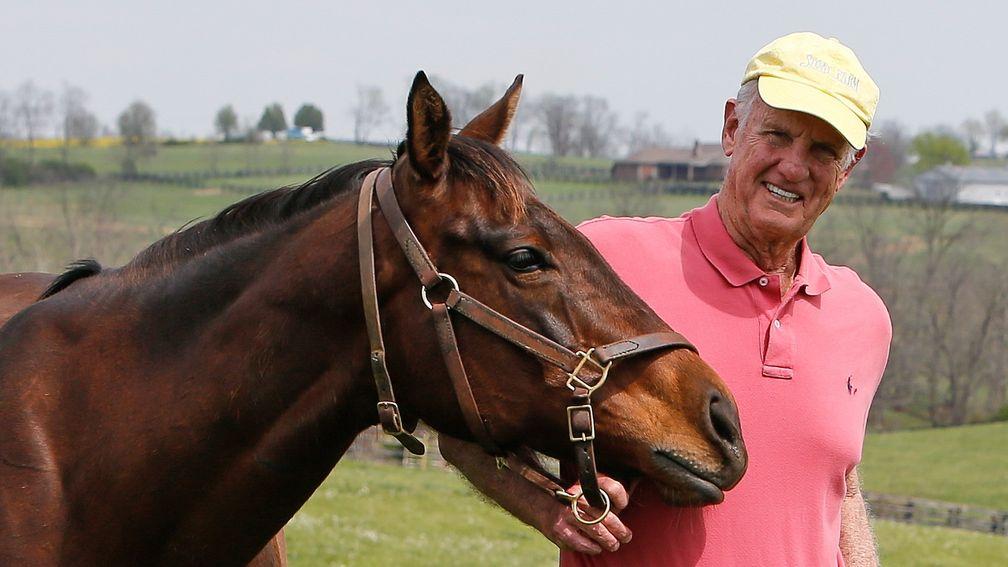
Southern Halo reversed shuttled to Coolmore’s Ashford Stud for a time and it was there that he sired More Than Ready, who was foaled in 1997 by the Woodman mare Woodman’s Girl for breeder Woodlyn Farm.
A speedy Grade 1 winner who has been a leading sire in both America and Australia, More Than Ready has achieved status as the world’s all-time top sire of winners with over 1,795, and he ranks among the top five all-time leading sires of stakes winners with more than 193.
His offspring, capable on dirt and turf, have included Australian champions More Joyous, Sebring and Samaready, American sprint champion Roy H and South African Grade 1 winner and leading freshman sire of 2015-16 Gimmethegreenlight.
Remarkably, at the age of 22, More Than Ready is still shuttling between WinStar Farm in Kentucky and Vinery Stud in New South Wales.
While Halo’s male descendants snare most of the spotlight, his daughters also have played major roles in keeping his name alive in pedigrees. Coup De Folie’s son Machiavellian sired Dubai World Cup winner Street Cry and thus is the grandsire of Winx, Zenyatta, Kentucky Derby winner Street Sense and South African Horse of the Year Oh Susanna.
Bred by Taylor from a half sister to Northern Dancer and thus 3x3 to Almahmoud, Coup De Folie was an $825,000 yearling who raced for Niarchos. From her, he also bred French champion Coup De Genie, who in turn delivered French champion Denebola.
'It was like fate'
All of Halo’s achievements occurred in the era when books for high-profile stallions were much smaller than today. From 22 crops, Halo sired 749 foals, and 62 (eight per cent) became black-type winners, including 26 Graded/Group winners, with another 48 (six per cent) placing in stakes races.
Halo remains one of only five sires in the last 60 years to sire two Kentucky Derby winners, and he also sired a runner-up in Strodes Creek. Halo was the broodmare sire of Derby winner Fusaichi Pegasus and Preakness Stakes winner Pine Bluff.
Looking back on Halo’s still evolving legacy, Hancock says he keeps one of the stallion’s shoes and a halter he wore as prized mementoes, and the memories of the fierce black horse and the son who saved his farm remain vivid.
"It was like fate, it was meant to be," he says. "It's a great saga, and I’m just very fortunate to have been involved."
If you enjoyed reading this, you might also like...
'Hollywood star' Oscar Performance puts Mill Ridge Farm back in the spotlight
Awesome Again is awesome still, even aged 25 and after serious illness
Biggest battalion of War Front two-year-olds make an early charge
Published on inFeatures
Last updated
- Private planes and public shame as bloodstock Santa Claus comes to Deauville
- 'This latest season has underlined his status as a breed-shaping sire' - Tony Morris's take on the 2024 European Pattern
- Broken glass and burst blood vessels at a totes emosh renewal of the December Foal Sale
- All work and no play makes James a dull boy at the Goffs November Sale
- Highs, lows and my Serbian counterpart provide a stern test of sales reporting stamina
- Private planes and public shame as bloodstock Santa Claus comes to Deauville
- 'This latest season has underlined his status as a breed-shaping sire' - Tony Morris's take on the 2024 European Pattern
- Broken glass and burst blood vessels at a totes emosh renewal of the December Foal Sale
- All work and no play makes James a dull boy at the Goffs November Sale
- Highs, lows and my Serbian counterpart provide a stern test of sales reporting stamina